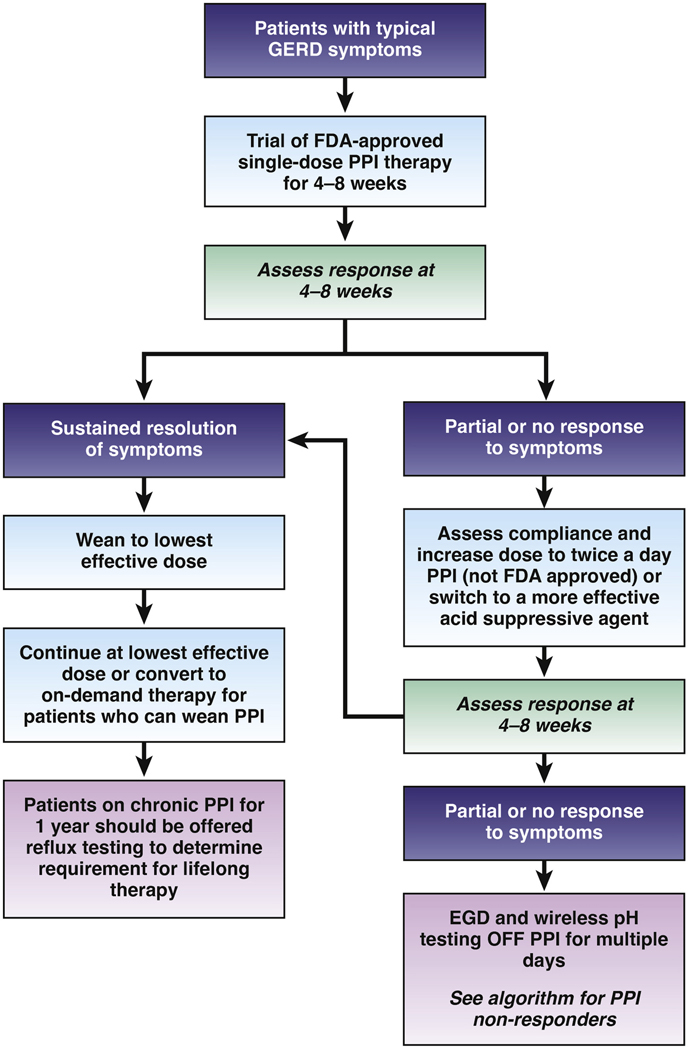Figure 1.
Utilization of empiric PPI therapy in suspected gastroesophageal reflux disease. Patients with typical reflux symptoms (heartburn, acid regurgitation) without alarm symptoms can be offered a trial of single dose PPI therapy, and response assessed in 4 to 8 weeks. Responders can be weaned down to the lowest effective dose, and if symptoms remain controlled, titrated further to on demand therapy if possible. Patients who need to remain on chronic PPI therapy can be offered reflux testing at the 1-year time point to determine appropriateness of long term therapy. Dose increase to twice a day or a switch to a more efficacious PPI can be offered to non- or partial responders to single-dose PPI trial. If response remains suboptimal, esophageal testing is suggested (see Figure 3). Patients with isolated extra-esophageal GERD symptoms benefit most from upfront esophageal testing rather than an empiric PPI trial.

